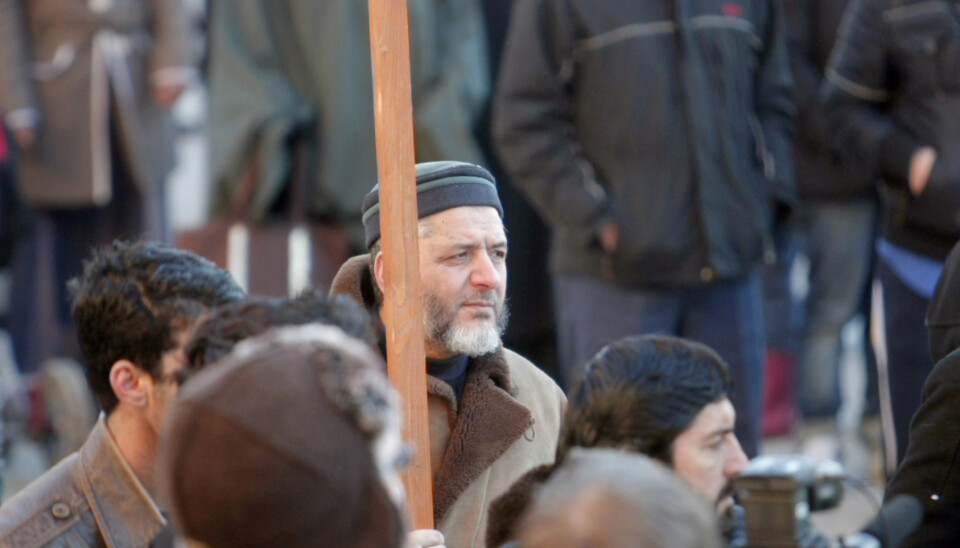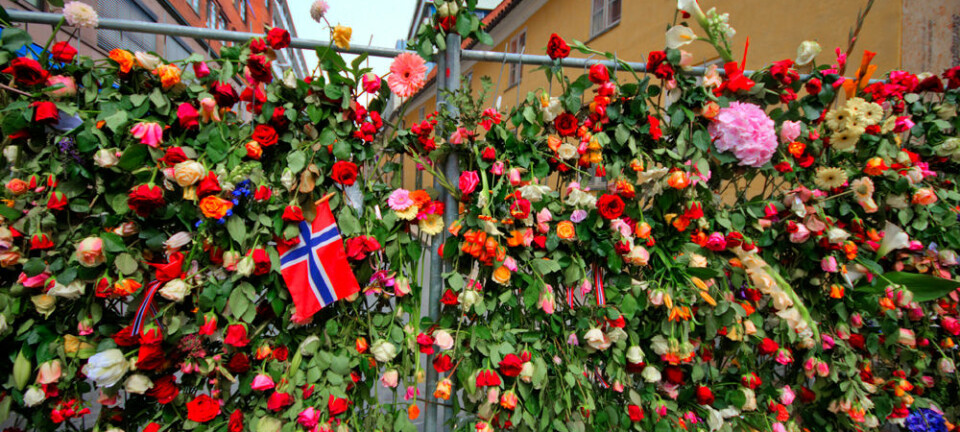An article from University of Tromsø – The Arctic University of Norway

What is unacceptable speech?
The public debate in Norway after the terror attacks in 2011 has focused on what kinds of speech and offensive remarks we must allow and tolerate.
Denne artikkelen er over ti år gammel og kan inneholde utdatert informasjon.
Good democratic debate depends upon our ability to tolerate criticism of our speech, our beliefs and our culture. At the same time, the debate must be inclusive, and not just governed by the majority's premises.
That is how PhD candidate Jonas Jakobsen responds when we ask what is considered acceptable speech in a democratic society.
According to him, the rationality of a debate is damaged when we repeatedly are told that for example most terrorists are Muslims, because this statement is a direct lie.
“Lying is like poison to a democratic debate. It forces the counter debater to respond with admonishments regarding the veracity of the statement, rather than to respond with constructive arguments," he says.
Criticism and freedom of speech
The public debate in Norway after the terror attacks in July 2011 has focused to some extent on what kinds of speech and offensive remarks we must allow and tolerate.
First came requests for a more measured approach to criticisms of Islam. Then came accusations that there were too many limitations on our freedom of speech.
The reason that Islam has been an important part of this debate is that the terrorist act was motivated by a fear of Islam destroying Norwegian society.
But even before the 22 July attacks, Islam had been a hot potato: Why has this particular religion become such an inflammatory topic in the public debate?
According to Jakobsen events such as September 11, the Muhammad cartoon controversy and the murder of Theo van Gogh in Holland have contributed to the West's fear of Islam, but also to frustration among Muslims because they're being identified with terrorism and anti-democratic attitudes.
“Both anti-Muslim and anti-Western forces employ a mutual suspicion to increase the polarization of the debate,” he says. “The debate about Islam is then challenged by our understanding of secularism, and our way of responding to new religious demands,” he says.
Secularism is the separation between the state and religion, which according to Jakobsen is the cornerstone of any democracy.
Western Europe - A global minority
The debate on freedom of speech and religion is not new.
It was not new in 2005, when cartoons of Muhammad published by a Danish newspaper created an uproar. And the debate is not just limited to online forums.
In recent years, the philosophical debate has increasingly focused on multiculturalism and encounters between Islamic and secular principles.
Jakobsen believes that Western European countries were surprised when they learned that their relationship to religion is not common in a global context.
The renowned German philosopher Jürgen Habermas believes that the secularization thesis, which assumes that religion disappears when a society is modernized, is a distinctive European phenomenon.
“The rest of the world, including the United States, is experiencing a religious revitalization. Secular Europeans are a global minority," says Jakobsen.
Offending religious beliefs
How do we deal with increasing presence of religion in the democratic debate? Does offending someone's religion mean that we are maintaining a good democratic debate?
Cultural and religious minorities should be able to be criticized, Jakobsen adds. Criticism will sooner or later make some individuals feel offended.
“But if we have to make allowances for everyone who feels offended, problems will soon appear: How can we compare the different offenses? Is it the person who is most offended that is in the right?" he asks.
Jakobsen also believes that it is wrong to say that freedom of speech is threatened when we have to consider the person we are talking to or about. It is not what we say that is limited by these kinds of considerations, but how we say it.
Democracy is more than a debate
Arguments that make different groups in society fall under suspicion is not a particularly good way to conduct a democratic debate.
Many, including the philosopher Axel Honneth, believe that an atmosphere of solidarity is necessary for a democracy to function. Religious groups perhaps cannot demand legal protection for religious feelings, but they can point out asymmetries in the public domain.
“An example would be unilateral negative portrayals of a certain religion in the media, which reduce followers of that religion’s ability to contribute positively to society," says Jakobsen.
Critics of Islam, multiculturalism and Muslims often take an aggressive tone.
Jakobsen says that many defend this tone by saying that everything is allowed verbally, as long as one does not carry out acts of violence.
“In a democracy, we must set limits on the degree of negative stigmatization of certain groups, especially if the group at issue is in a minority,” he says.

































